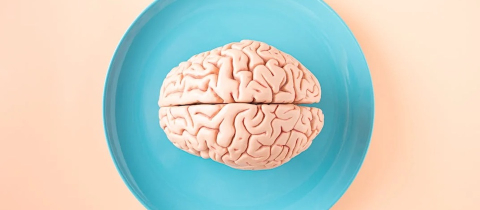There’s good news for the marketers of blueberries but not so good news for the pomegranate people. We’ve heard all about blueberries being great for the mind, how seniors do better on memory tests after drinking blueberry juice, how mice navigate mazes better on a blueberry diet and how rats scamper across clotheslines more adroitly if they have been doped up on blueberries. There have also been studies suggesting that blueberries, mainly due to their antioxidant content may play a role in preventing heart disease. Now we have some more evidence along those lines from researchers at the U.S. Department of Agriculture. Heart disease is often precipitated by the buildup of deposits in blood vessels, mostly in the coronary arteries. The deposit, commonly referred to as “plaque” can impair the flow of blood. Plaque can also stimulate blood clot formation and when a clot blocks a major artery it can lead to catastrophic results such as a stroke or heart attack. The Department of Agriculture researchers studied mice that were prone to the buildup of plaque because they were deficient in apolipoprotein-E, a compound that is needed to remove excess cholesterol from the blood. Cholesterol plays a major role in plaque formation. Fifteen mice were fed a diet that contained freeze-dried blueberry powder, making up about 1% of their diet while fifteen others got the regular laboratory chow for twenty weeks. After that time the researchers compared the size of deposits in the aortas of the two groups of mice and found that they were roughly fifty percent smaller in the blueberry treated mice. That’s pretty interesting, but what does it mean for us? The blueberry powder the mice were given every day was equivalent to about half a cup of fresh blueberries. And when you consider the size difference between mice and men, it is quite clear that at least in terms of fresh blueberries we would have to consume a bucketful a day. Of course in terms of dried powder, it would be much less.
I hope the blueberry marketers do not end up hyping this study and start inferring that blueberries are an antidote to heart disease. That’s the mistake pomegranate juice manufacturers made and which got them into hot water with the Food and Drug Administration. First let me state that there are some intriguing studies about the potential benefits of drinking pomegranate juice. But if you are going to make a direct health claim then you have to have more than intriguing studies. You have to have clear-cut evidence. For example, if you are going to claim that clinical studies prove that pomegranate juice reduces the risk of heart disease, as some manufacturers do claim, then it is not enough to have some sort of animal study that looks at coronary lesions. You have to have evidence that people who drink the juice experience less coronary disease. No such evidence exists. If you are going to claim that the juice helps with erectile dysfunction, then you have to have a placebo controlled study that demonstrates this. No placebo, no go. The reason that pomegranate juice marketers got slapped was not that they are selling a quack product, it may indeed be a healthy beverage. But you can’t make unsubstantiated claims. Unfortunately it is easy to take scientific research and misrepresent it for marketing purposes. Any attempt to portray single foods as having spectacular nutritional properties is misleading. It is the overall diet that matters. Don’t get me wrong; I eat blueberries most days and I like pomegranate juice. Better than eating doughnuts or drinking soft drinks.







